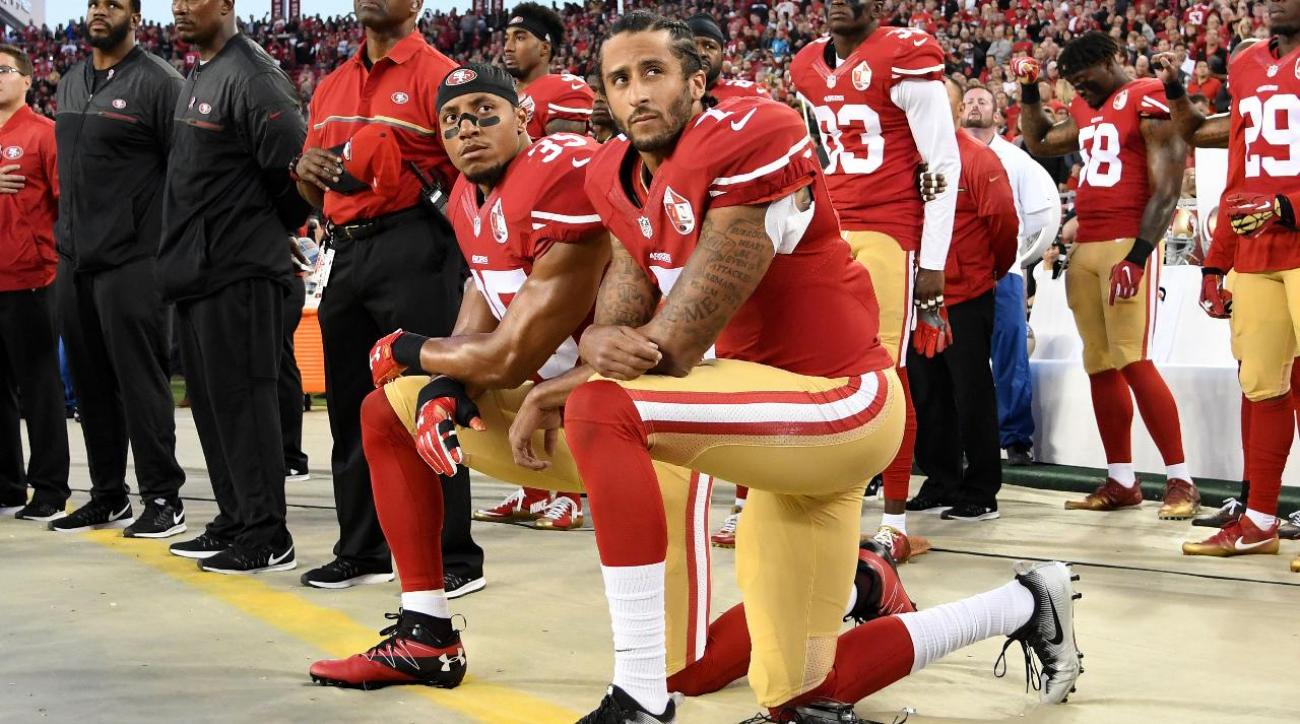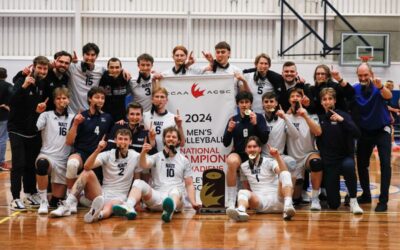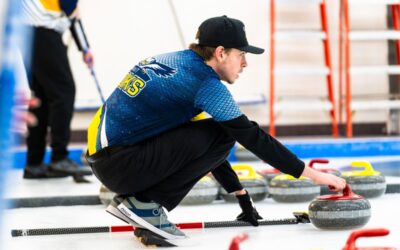Sports buffs, historians and those older than 60 will remember another time an athlete’s political statement made headlines. Upon completion of the men’s 200-metre final at the 1968 Olympics, gold and bronze medal winners, and black Americans, Tommie Smith and John Carlos took to the podium with black-gloved fists raised and shoes removed in a gesture of solidarity with and protest against the conditions facing many Americans during that era. The athletes were booed as they left the stadium, and were eventually suspended by the IOC, a spokesman of which called the act “a deliberate and violent breach of the fundamentals of the Olympic spirit.”
Athletes will always have expectations draped about their necks like the black scarf and necklace of beads worn by Smith and Carlos that day. Like Christmas caricatures in a snowglobe, athletes live in their stadiums, captured and contained by expensive glass lenses to do one thing – perform as expected. When they don’t, their onlookers make a new sport of examining and analyzing their operational failures. That’s why, after every Oilers loss, fans line up in radio queues so that they can pick apart the players’ performance, and often their character as well. That’s the unavoidable dilemma of professional athletics.
Should professional athletes be able to leverage the influence of their organizations to do things like make political statements? The answer to that question lies in the mind of the beholder. The point is that they’re not expected to and, when they do, the fact that they did becomes a bigger story than whatever agenda they were trying to promote. The overwhelming critical response to Kaepernick’s actions has not been an examination of the issues he sought to highlight, but a scrutinizing of the irregular methods he used to do so.
Absolutely, Colin Kaepernick should involve himself in the issues he is passionate about. Unfortunately for him, the reaction of the sports media world laid its emphasis on the difference between what happened and what was expected to happen. This reaction is not Kaepernick’s fault, of course, but it is precedented. His actions have been effective – other athletes have mirrored his protest – my only criticism is that they could have been more so if executed outside of the sporting arena (even if that only becomes clear in hindsight). It’s important to note that Kaepernick has now pledged to donate the first million dollars he makes this season to community organizations.
Crime, poverty, racism affecting black people – they’re all deeply rooted problems in the United States. They’re problems that can be traced back hundreds of years to slavery, traced along lines of separatism created by things like societal structure, control of land usage and ownership and mortgage and insurance policies – the “police brutality” that Colin Kaepernick has spoken of is the latest knot in a long and tangled racial rope extending back to and beyond the nooses of post-Civil War lynch mobs. Systemic racism in America is an incredibly complex problem that the basic research I’ve done doesn’t begin to properly comprehend.
That’s the other problem with Kaepernick making his statement in the public forum of the NFL. Obviously, the United States as a whole hasn’t yet fully understood the challenges faced by minorities in the country. We wouldn’t be writing this article if they had. Like any problem – in math, science or society – this one can’t be solved until all factors are evaluated and considered and, like any problem, trying to solve it without being truly capable of coming up with an answer can serve to complicate the attempt. Look at Chicago, for example, where three gangs allegedly put their differences aside to plot out attacks on law enforcement officers following the shooting of an unarmed black teen in the city. Kaepernick’s methods suggest passivity; his ideologies promote action.
– Connor O’Donovan, Sports Editor
I applaud Colin Kaepernick’s decision despite the intense professional microscope he is already under. He knows he is inviting more backlash and scrutiny, which would be difficult to handle for some. There is still a racial unrest in the United States today that is often swept under the rug. If you don’t understand where Kaepernick is coming from, you are living in a world where outward racism prolonged by society or government or law enforcement has been solved.
Colin Kaepernick’s insistence on sitting/kneeling during the national anthem is a message should be understood and supported – whether he is right or wrong. His protest hurts no one, is not blustery or loud but simple in its understatement. He is not asking for recruitment but letting others with similar views join him.
In the rear view mirror, we still remember Ferguson, Missouri or the dying phrase of Eric Garner two summers ago, “I can’t breathe,” as he was put in a chokehold and killed by Staten Island police. “I am not going to stand up to show pride in a flag for a country that oppresses black people and people of colour,” Kaepernick stated.
A lot of the reason there is opposition to Kaepernick’s stance is because he has not been a model citizen during his NFL tenure and has been perceived as a distraction on his team as his prowess on the field has dropped in the past two seasons. This doesn’t make him the ideal messenger but it’s important to keep this quote by Russell Brand in focus: “When I was poor and complained about inequality they said I was bitter; now that I’m rich and I complain about inequality they say I’m a hypocrite. I’m beginning to think they just don’t want to talk about inequality.”
Kaepernick’s silent protest seems to make people uncomfortable, which is exactly the point! This challenge to the norm in an age where organized peaceful protest is becoming more difficult to enact without police interruption is a great way to take a stand (or a knee) and make other people see how some black people view their America today.
When calling someone unpatriotic – as many people are calling Kaepernick – you don’t really understand what the issue is. You are trying to marginalize an unpopular opinion without giving consideration to the message. Being uncomfortable about issues is a feeling we have to accept and try to rationalize when dealing with inequality today.
Kaepernick has the constitutional right to sit or kneel during the anthem. The constitution exists to protect unpopular speech and unpopular opinion. It is not there to marginalize conversation. It protects the views of those least represented. President Obama confirmed this when asked about the quarterback, saying that Kaepernick seems “sincere” in his protest.
The opposition says that Kaepernick’s knee disrespects the military service. Yet because of this conversation, there are veterans supporting Kaepernick’s plight, which again is the point. Troops defend the country’s freedoms to give Colin Kaepernick the right to kneel during the anthem. The military is acting as a vessel so that people who think the country can improve, can voice that opinion. As Ben Franklin pointed out: “Dissent is the highest form of patriotism.” Yet, in post-9-11 America it has been normal to call critics of the government unpatriotic.
Even if you don’t agree with Colin Kaepernick, you have to understand where he is coming from and respect that he has the ability to voice that opinion freely. It serves no purpose to say Kaepernick is out of line because the issues still exist, regardless if he stands for the anthem or not. We need to put more action behind the words to right any situation. People don’t like to feel uncomfortable about the environment they live in, especially on Sunday, when we sit down and watch predominantly black men entertain us with football for a few hours. Instead of talking about proper anthem etiquette, let’s spend the same energy on these issues so we don’t have to make someone dissent to the anthem to make a point.
– Michael Menzies
Image from Sports Illustrated





